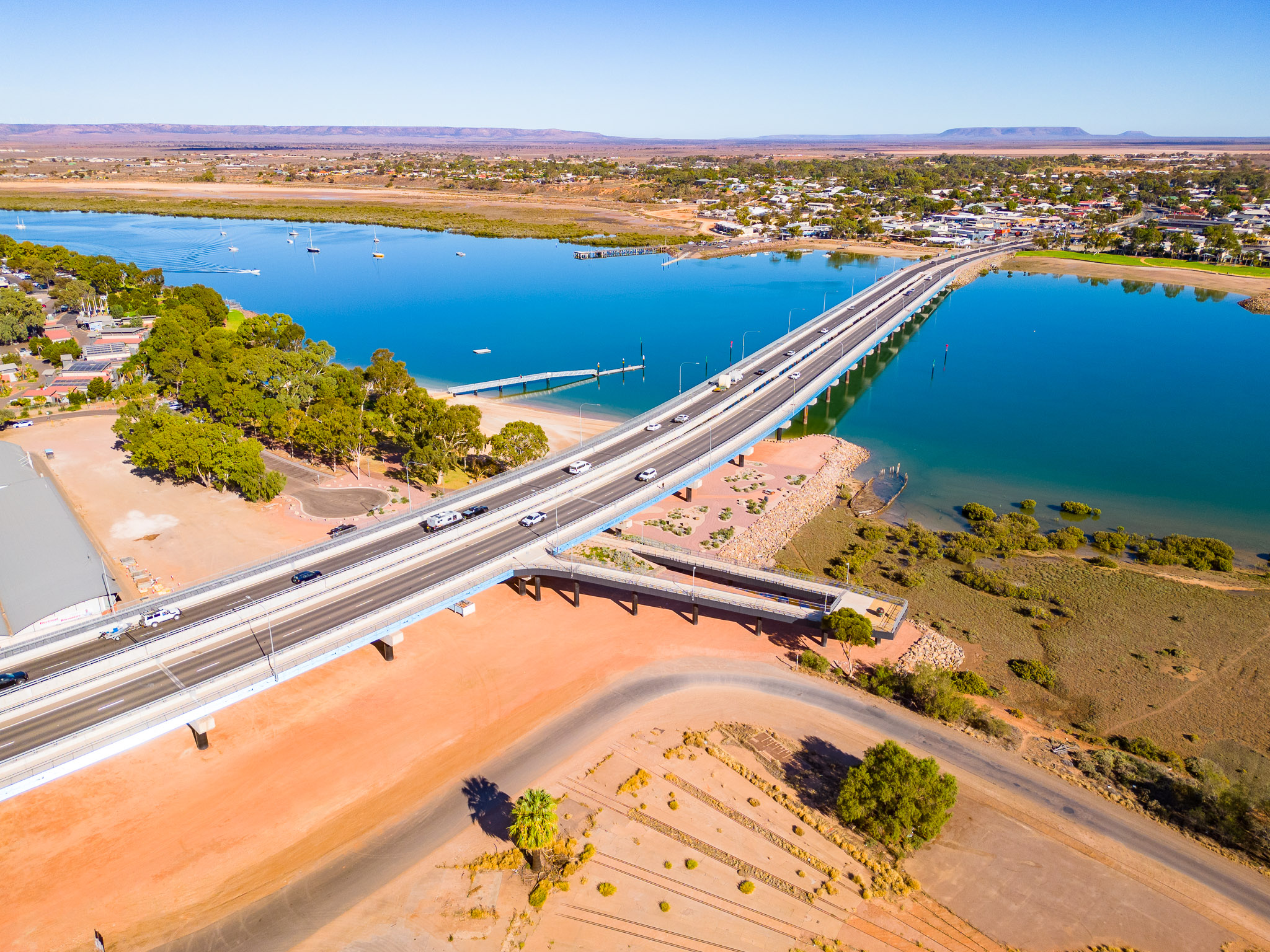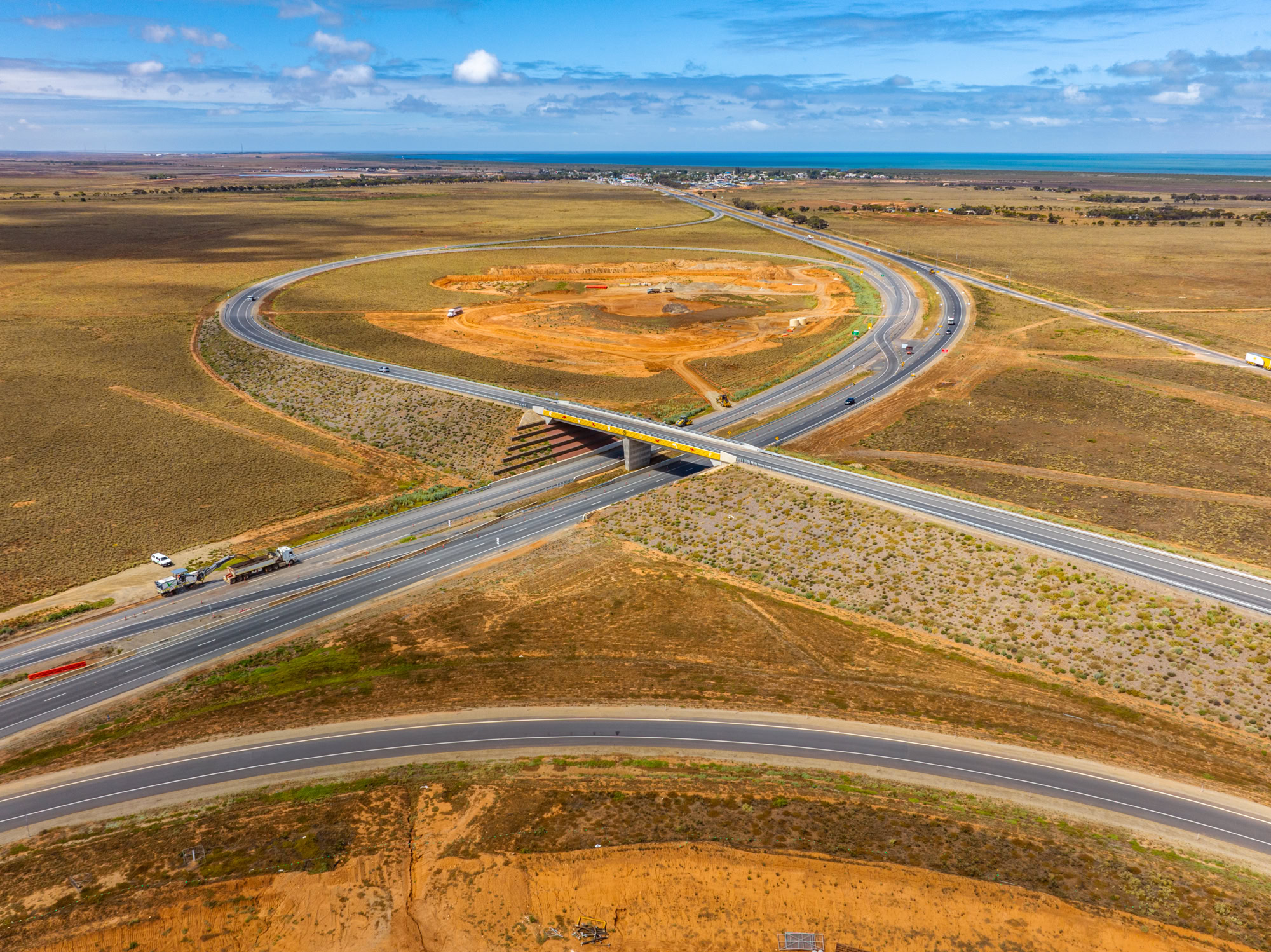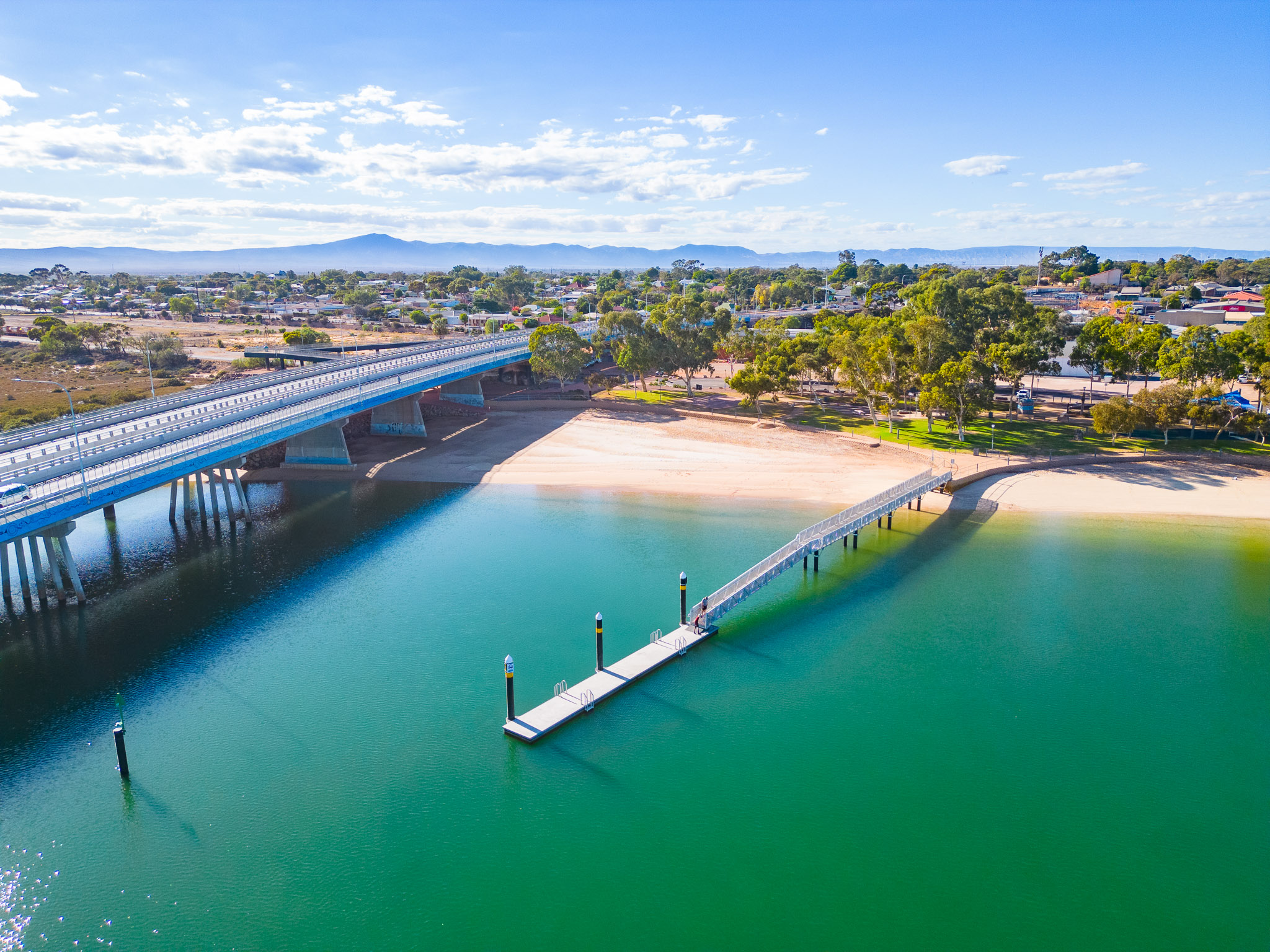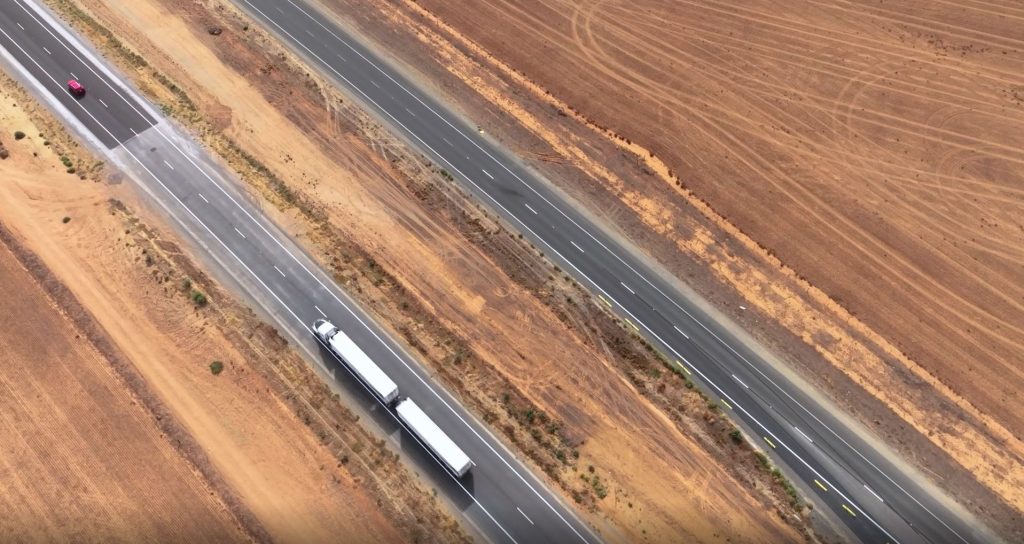











The Port Wakefield to Port Augusta (PW2PA) Alliance has successfully delivered a suite of major regional infrastructure projects that are now complete and open to traffic. Working in collaboration with the South Australian Department for Infrastructure and Transport, the PW2PA Alliance, comprising CPB Contractors, Aurecon and GHD, has delivered transformative upgrades to critical freight and commuter routes in the state’s north. These projects were designed to improve road safety, reduce congestion, and strengthen connections between regional communities, freight networks, and urban centres across South Australia.
Joy Baluch AM Bridge Works - January 2026
As part of ongoing maintenance and rectification activities, remediation works will be undertaken on a section of kerb on the northbound bridge.
Our Projects
Joy Baluch AM Bridge Duplication
 Construction of the Joy Baluch AM Bridge Duplication in Port Augusta began in early 2020. This significant infrastructure project involved duplicating the existing bridge to deliver two-way traffic movement across the Spencer Gulf, along with the addition of a shared-use path for pedestrians and cyclists. The project has vastly improved safety and connectivity between the eastern and western sides of Port Augusta, while reducing traffic congestion and improving freight efficiency. The duplicated bridge officially opened to traffic in June 2023.
Construction of the Joy Baluch AM Bridge Duplication in Port Augusta began in early 2020. This significant infrastructure project involved duplicating the existing bridge to deliver two-way traffic movement across the Spencer Gulf, along with the addition of a shared-use path for pedestrians and cyclists. The project has vastly improved safety and connectivity between the eastern and western sides of Port Augusta, while reducing traffic congestion and improving freight efficiency. The duplicated bridge officially opened to traffic in June 2023.| Construction Commenced | Construction Completed |
| Early 2020 | June 2023 |
Port Wakefield Overpass and Highway Duplication
 Work commenced on the Port Wakefield Overpass and Highway Duplication in late 2020. This project involved constructing a grade-separated overpass, duplicating the highway through Port Wakefield, and upgrading key intersections. It addressed a well-known traffic bottleneck and significantly improved traffic flow and safety along this critical corridor. With these upgrades, the risk of head-on and intersection collisions has been reduced, and freight and commuter travel has become more efficient. The overpass and duplicated highway were opened to traffic in April 2022.
Work commenced on the Port Wakefield Overpass and Highway Duplication in late 2020. This project involved constructing a grade-separated overpass, duplicating the highway through Port Wakefield, and upgrading key intersections. It addressed a well-known traffic bottleneck and significantly improved traffic flow and safety along this critical corridor. With these upgrades, the risk of head-on and intersection collisions has been reduced, and freight and commuter travel has become more efficient. The overpass and duplicated highway were opened to traffic in April 2022.| Construction Commenced | Construction Completed |
| Early 2020 | June 2023 |
Port Augusta Swimming Pontoon
 Construction of the new swimming pontoon at the Port Augusta foreshore began in late 2024. Designed as a community and recreational asset, the pontoon enhances public access to the Spencer Gulf and creates a new space for residents and visitors to enjoy water-based activities. The project was completed in March 2025 and handed over to the local council, just in time for the South Australian Masters Games in April. It represents a lasting legacy for the community and a boost for local tourism.
Construction of the new swimming pontoon at the Port Augusta foreshore began in late 2024. Designed as a community and recreational asset, the pontoon enhances public access to the Spencer Gulf and creates a new space for residents and visitors to enjoy water-based activities. The project was completed in March 2025 and handed over to the local council, just in time for the South Australian Masters Games in April. It represents a lasting legacy for the community and a boost for local tourism.| Construction Commenced | Construction Completed |
| Late 2024 | March 2025 |
Augusta Highway Overtaking Lanes
| Construction Commenced | Construction Completed |
| Late 2022 | Late 2023 |
Augusta Highway Duplication
 Construction of the Augusta Highway Duplication between Port Wakefield and Lochiel began in mid-2021. The project involved the duplication of approximately 28 kilometres of highway, providing a divided carriageway that separates opposing traffic flows. This upgrade has delivered substantial improvements in road safety, especially in reducing the risk of head-on collisions. It has also supported improved freight efficiency and strengthened the connection between regional centres. Major works on this section are complete, with the road returned to full speed on 31 March 2025.
Construction of the Augusta Highway Duplication between Port Wakefield and Lochiel began in mid-2021. The project involved the duplication of approximately 28 kilometres of highway, providing a divided carriageway that separates opposing traffic flows. This upgrade has delivered substantial improvements in road safety, especially in reducing the risk of head-on collisions. It has also supported improved freight efficiency and strengthened the connection between regional centres. Major works on this section are complete, with the road returned to full speed on 31 March 2025.| Construction Commenced | Construction Completed |
| Mid 2021 | March 2025 |
Lower Eyre Peninsula Overtaking Lanes
| Construction Commenced | Construction Completed |
| Mid 2022 | Late 2023 |
Dublin Saleyards Access Upgrade
| Construction Commenced | Construction Completed |
| Early 2021 | September 2021 |
More Information
We sincerely thank the community for its ongoing patience, support, and cooperation throughout the delivery of these critical regional upgrades. For more information or to speak with a member of the project team, please contact us on 1300 161 407 or email enquiries@pw2pa.com.au